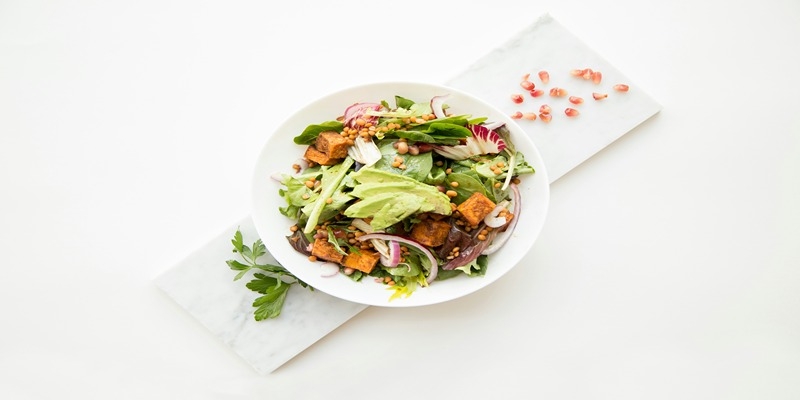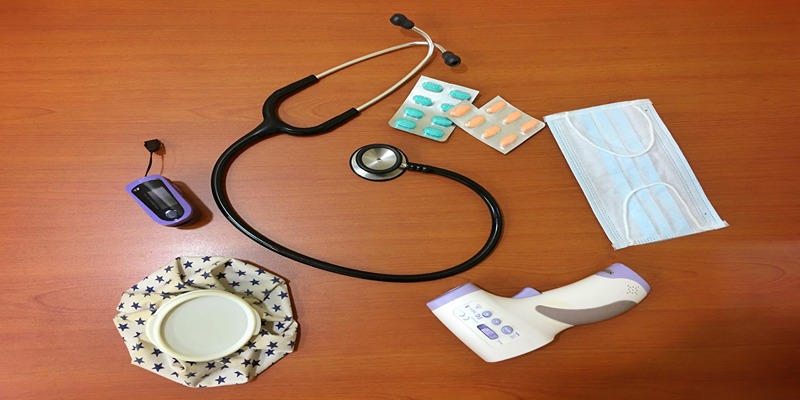Adding salads in one's diet is a step towards attaining overall physical and mental well-being. These brightly colored foods, besides just being a side dish, are a rich source of vitamins and minerals as well as fibers. Salads offer a wide range of possible options to put together diverse components in one dish, and thus bring joy and satisfaction to the consumer. Adding them to your daily diet could result in better digestion, weight loss, and wellbeing of the body in general. This article explores many health aspects of salads and proposes recipes that one can enjoy to improve their daily eating routine, but in a way that is both easy and tasty.

Salad Health Benefits
Nutritional Value of Ingredients
Salads can be regarded as the symbol of nutritional extravagance due to their assorted ingredients. The colors of vegetables that may come in handy being antioxidants, therefore, help fight cellular damage. Including proteins like grilled chicken, tofu or beans in the diet will complement the nutrient richness, amino acids being available in this group of proteins. Besides nuts and seeds other toppings also add up vitamins and healthy fats to the salads making them a fully packed source of nutrients.
Weight Management and Digestive Health
Adding salads to your diet is critical in controlling weight and promoting digestive health. The fiber which comes mainly from raw vegetables and greens contributes to digestion and thus it creates a sense of fullness, reducing the urge to eat more. Fiber promotes a healthy microbiome of the intestines which is, in turn, important for effective digestion and absorption of the nutrients in our body. With the low-calorie makeup of most salads, you can still lose or maintain weight while still having a nutritious diet if you add dressing lightly to it.
Boosting Immune Function
The fact that different vitamins and minerals are found in salads is the vital link in strengthening the immune system. Vitamin C, which can be found in different ingredients such as citrus fruits and bell peppers, is well known for its immune support capabilities. Zinc is also one of the nutrients found in seeds and nuts that are the immune-supportive ones. All these compounds in addition with the anti-oxidant attributes of some salad ingredients are used in boosting the immune system and protecting the body against infections and diseases.
Heart Health and Chronic Disease Prevention
The daily inclusion of salads is one of the factors that can help one to live a healthy heart and to prevent chronic diseases. Omega-3 fatty acids are abundant in avocados and flaxseeds. They improve the well-being of the heart by fighting inflammation and lowering the risk of heart attack. The antioxidants and phytonutrients that are found in green leafy vegetables as well as vegetables could possibly decrease the risk of diseases like cancer and diabetes. Lastly, the low-fat, high-fiber combination in salads is the factor that regulates the blood pressure and cholesterol level and promotes cardiovascular health and reduces chances to get chronic health conditions.
Crafting Nutritious Salad Recipes
Selecting Fresh and Nutrient-Rich Ingredients
The basic components of a healthy salad are the fresh and nutrient-rich ingredients you select. It is recommended to center your plate around leafy greens such as arugula, romaine, or mixed baby greens which are a great source of vitamins and minerals. Use different colors for vegetables like tomatoes, carrots, and purple cabbage each one representing separate nutrients and antioxidants. When it comes to protein intake, opt for lean cuts of grilled chicken, tofu, or legumes. Adding to a source of healthy fats, like avocados, nuts or seeds, ensures a complete absorption of nutrients and also adds richness.
Balancing Flavors and Textures
Salad making requires finding a balance between taste and texture, so as to make it healthy and delicious. Pair sweet fruits such as berries or bitten apples with savory elements like cheese or grilled vegetables. Add crunch to your salad with almonds, pumpkin seeds, or bell peppers. Use herbs and spices for giving extra taste without involving extra calories. In addition to this, it will make the salad more in-appealing and also give a wide range of nutrients and taste experiences.

Tips for Healthy Dressings and Toppings
The dressing could be the difference between a salad being good for your health or not. Instead of using commercial dressings where the ingredients are not known, it is better to make your own dressings, preferably those used as a base olive oil, vinegar, or yogurt. Include in the mix lemon juice, fresh herbs and spices, instead of the high-calorie and high-sodium store-made dressings. Keep an eye on the amount so you end up with a light salad instead of a high-calorie meal. Toppings are certainly alluring, but beware of the choice.
Enjoyable Healthy Salads: Recipe Ideas
Bringing together an array of good tastes, textures, and nutrients is the best way to make a salad that is not only healthy but also enjoyable. For a delightful, antioxidant-filled summer berry salad, you might start with a mix of greens, add strawberries, blueberries and almonds, and toss it all together with balsamic vinaigrette. For a Mediterranean chickpea salad, mix chickpeas, cucumbers, cherry tomatoes, red onion, and feta, then dress in olive oil and lemon juice. When you are in the mood for an Asian flavor, you could blend cooked quinoa with shredded carrots, bell peppers, and green onions, and add soy sauce and sesame oil dressing, and then sprinkle sesame seeds on top for garnishing.
Conclusion
Salads are not only a simple, healthy food, but they also combine several benefits such as nutrition, versatility, and delightfulness. Whether its a guide to fighting free radicals with berry mix for antioxidants, a Mediterranean chickpea blend packed with protein, a quinoa creation teeming with nutrients or a hearty salad of avocado and beans, the possibilities are endless and always tasty. These salads serve as a platform for satisfying different tastes preferences while also providing a substantial portion of a well-balanced diet. The inclusion of salads in daily meals is the most pleasant way of achieving the desired level of micro-ingredients intake and at the same time the way of experiencing the great variety of tasteful options, turning healthy eating into both amusement and a lifestyle.







